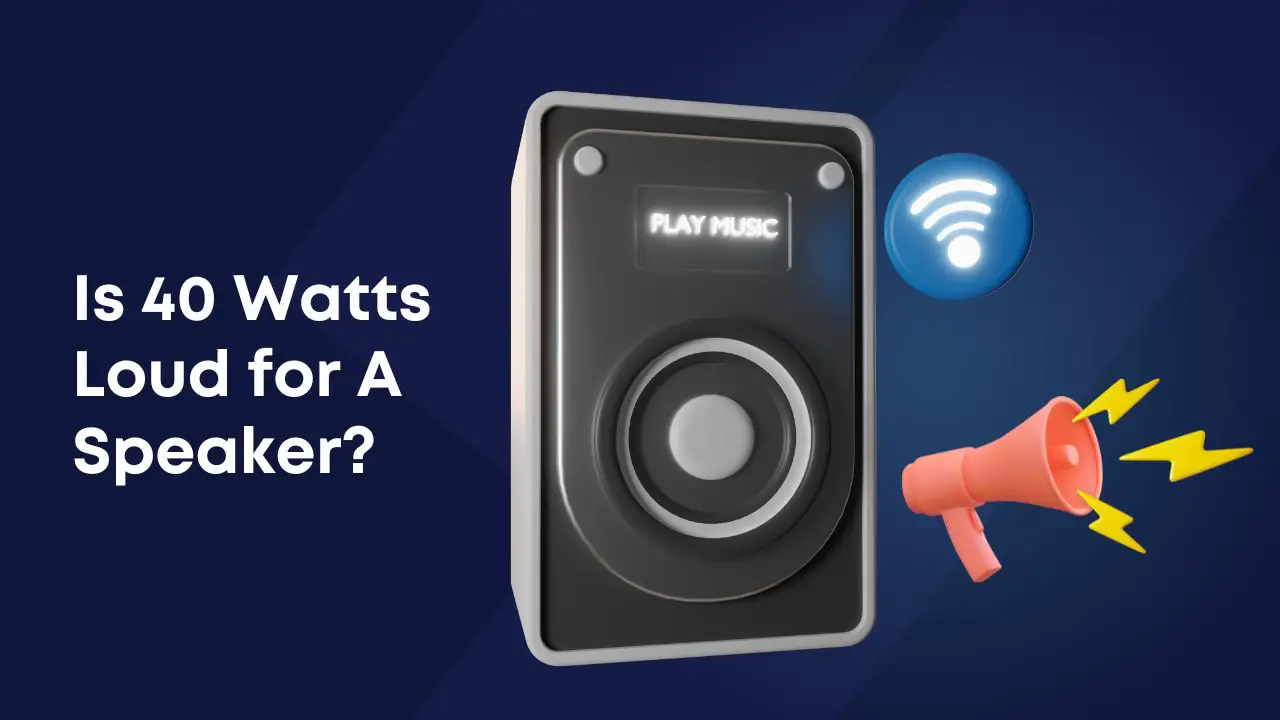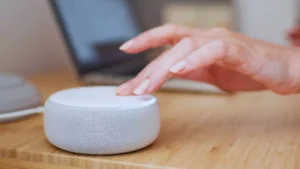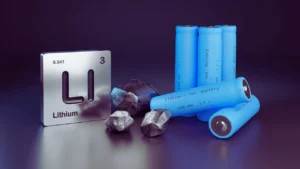When shopping for speakers, one of the specifications that are often listed is the wattage of the speaker. This can be a confusing metric for many people, as they may not understand exactly what it means or how it affects the volume of the speaker.
So, in this article, we will explore whether 40 watts is a loud volume for a speaker and provide some context for understanding the role that wattage plays in speaker volume.
Don’t skip any information if you really want to learn and understand something related to this topic.
In This Article:
What Does Speaker Wattage Mean?
In simple words, the maximum amount of power that a speaker is able to safely handle is denoted by the wattage of the speaker. This is not the same thing as the volume of the speaker, although there is a relationship between the two.
A speaker with a higher wattage rating will typically be able to produce a louder sound than a speaker with a lower wattage rating, but this is not always the case.
There are two main types of wattage ratings that you may see when shopping for speakers:
- RMS wattage
- Peak wattage
RMS wattage refers to the amount of power that a speaker is able to handle over the course of an entire performance, while peak wattage refers to the maximum amount of power that a speaker is able to manage during concentrated periods of time.
Is 40 Watts Loud For a Speaker?
In general, 40 watts is not a particularly high wattage rating for a speaker. Most home theater systems and portable Bluetooth speakers have wattage ratings that are much higher than 40 watts. However, this does not always indicate that a 40-watt speaker will not be loud.
The volume of a speaker is determined by several factors, including the size of the speaker, the design of the enclosure, and the efficiency of the speaker’s driver. A small, efficient speaker with a well-designed enclosure may be able to produce a sound that is just as loud as a larger, less efficient speaker with a lower wattage rating.
Therefore, whether or not a 40-watt speaker is loud depends on the specific speaker and its other characteristics.
So, overall you can say a 40-watt speaker will not be as loud as a larger speaker with a higher wattage rating, but it can still produce a decent volume for smaller rooms or personal use.
What Is Considered a Loudspeaker?
It is difficult to define a specific wattage or size that is considered a loudspeaker, as the volume of a speaker is determined by a variety of factors. A speaker with a higher wattage rating may be able to produce a louder sound than a speaker with a lower wattage rating, but this does not necessarily mean that it is a loudspeaker.
As I mentioned earlier, the size and design of the speaker, as well as the efficiency of the speaker’s driver, can also play a role in the volume of the speaker.
In general, a speaker is considered loud if it is able to produce sound at a high volume without distortion. This may vary depending on the intended use of the speaker and the size of the space it is being used in.
For example, a speaker may be considered loud for personal listening in a small room but may not be sufficient for a larger space or a party.
My Personal Experience with Different 40 Watts Speakers
In my experience with 40-watt speakers from various companies, the loudness and sound quality of these speakers has varied significantly.
One of the first 40-watt speakers I owned was a portable Bluetooth speaker from a well-known electronics company. Despite its relatively low wattage rating, that speaker was able to produce a decent volume for personal listening or small group gatherings. The sound quality was also good, with clear and crisp audio.
However, I have also owned 40-watt speakers from other companies that were not as loud or had poorer sound quality. One such speaker had a distorted sound at higher volumes and was not suitable for use in larger spaces or parties. The sound quality was also lacking, with muffled audio and a lack of clarity.
So, I can say some 40-watt speakers will produce a decent volume and good sound quality, while others will fall short in terms of loudness and audio quality. That is why I suggest you consider the specific characteristics and features of a speaker when evaluating its performance rather than just relying on the wattage rating alone.
Conclusion
So, from the above discussion, we can say that 40 watts are not a particularly high wattage rating for a speaker, but it does not necessarily mean that a 40-watt speaker is not loud. The volume of a speaker is determined by a variety of factors, including the size of the speaker, the design of the enclosure, and the efficiency of the speaker’s driver.
Frequently Asked Questions
How Does the Efficiency of a Speaker’s Driver Impact the Volume?
The efficiency of a speaker’s driver refers to how effectively the speaker converts electrical energy into sound energy. A more efficient speaker will be able to produce a louder sound with less power, while a less efficient speaker will require more power to produce the same volume.
Does Overdrive a Speaker, Causing It to Produce Distorted Sound?
Yes, it is possible to overdrive a speaker, causing it to produce a distorted sound. Overdriving a speaker occurs when the speaker is pushed beyond its power-handling capability, resulting in distorted sound. This can be caused by providing too much power to the speaker or by playing music with a high volume or complex waveform.
How Do the Size and Design of a Speaker’s Enclosure Affect the Volume?
A larger enclosure can typically produce a louder sound than a smaller enclosure, as it allows the speaker to move more air. The design of the enclosure can also affect the volume of the speaker. For example, a sealed enclosure may produce less volume than a ported enclosure, as the air movement within the enclosure can help to amplify the sound.
Is It Better to Have a Higher Wattage Speaker?
The wattage rating depends on the speaker’s utilization. For example, if the speaker will be used in a small room or for personal listening, a speaker with a lower wattage rating may be sufficient. On the other hand, if the speaker will be used in a large space or for a party, a speaker with a higher wattage rating may be necessary to produce sufficient volume.





